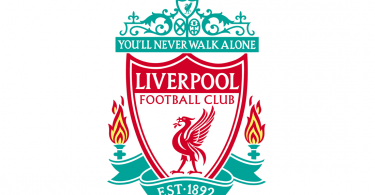There was a heart warming story in the sports world last week. In an Asian Cup match in Brisbane between China and Saudi Arabia, Chinese goalkeeper Wang Delai asked 12 year old Stephen White which way to dive after China conceded a penalty. He took his advice and saved the penalty, and a story to warm the cockles was born. China went on to get a surprise victory, winning 1-0 in their opening group match. It caused a furore in China, a country which has a slightly odd and tormented relationship with the beautiful game.
A source of embarrassment
I was a teacher of English in China for two years and the topic of the national football team would inevitably from time to time come up in conversation. A recurring consensus seemed to be one of embarrassment about their national team, and as an Englishman, I could empathise. Both instances of embarrassment stem from a feeling of underperformance and a sense of being let down, but they are in reality on different levels.
Whilst English fans can take solace in their one hurrah of World cup glory in 1966, the Chinese, a nation of nearly one and a half billion people, can only take comfort in reminiscing about a solitary World cup appearance, in 2002. In terms of scandals, the Chinese really take the biscuit. In 2012, four former Chinese national team players were sentenced to prison for accepting bribes for fixing games.
Recently in the UK, a match fixing scandal broke out involving mostly non-league players. By no way of justifying the match scandal at home, the difference in the levels of the players involved between the scandal in China and the scandal in the UK is a testament to the heights that corruption has reached in Chinese football.
Mistrust
There is very little trust in the Chinese football authorities, and scandals are practically seen as par for the course. The neurosis amongst the fans in China about the national team and the Chinese game in general is palpable; it is essentially seen as a joke. The national team reached a nadir last year with a 5-1 defeat to lowly Thailand. One commentator noted that the defeat was a “fuse, and what lies behind this fuse is a public opinion atmosphere that has long since been ready to explode at any time.”
With such negativity, one wonders if the pressure is simply too much for them. This is definitely a factor, but it does not get round the fact that they simply do not have very good football players. So, out of a nation of nearly one and a half billion people, why can they not scrape together a half decent XI?
Not a ‘football’ nation?
The answers are numerous but fundamentally it is down to their culture. Football is simply not rooted in the culture as it is in other countries. It could be argued that it is the study culture of children, a culture where children are not encouraged to play football after school and are instead encouraged to study, and study some more, which has affected the development of football in China, and I think this is partly true.
However, the major obstacle is a little game called basketball. Everywhere you go in China’s cities you see hoops and people having little games; nowhere near to the same extent do you see people playing football. Chinese people are proud of the impact that their players have had on the international basketball scene, and their impact has certainly been significant.
Although they haven’t had any success at the Olympics or the basketball World Cup, they have had success in the Asian basketball games. Additionally, and I think rather crucially, basketball has produced arguably China’s first true sporting icon; Yao Ming. One cannot walk far without coming into vision of an image of him being plastered onto a big billboard when walking through his hometown, Shanghai. This is despite it being over 3 years since his retirement.

First Chinese football icon?
This is what Chinese football needs; an icon. A David Beckham type (who in China, like seemingly everywhere now, is very well known) A player to make it big in one of the big European leagues just as Yao Ming did in the NBA.
A quick google search of ‘China’s best football players’ will bring up, amongst others, players such as Fan Zhiyi and Sun Jihai.
These were players which played in the Premier League, and in Sun Jihai’s case, for Manchester City (before their oil tycoon days), but no-one has made it big for a top club like players from other asian countries have, such as South Korean player Park Ji Sung did for Manchester United, for example. When, or rather if, this happens, I think football really will make it to the big-time in China.
So, is it a question of if, or when?
Youth development
There are certainly promising signs in the development of youth football in China. In June, property tycoon Xi Jianyin opened the world’s biggest football academy in Guangzhou. In a deal with Real Madrid, Spanish coaches help coach 2,400 students over 50 pitches. Big money is also pouring into the Chinese super league. 2013 AFC Champions League winners Guangzhou Everglade have attracted the might of World Cup winner Marcelo Lippi as their coach. Meanwhile, across town, former England manager Sven Goran Eriksson manages at Guangzhou R&F.
Big name players have also been attracted by the promise of a big pay day. Players such as Didier Drogba and Nicholas Anelka have played in China in the last couple of years, although both have since left. It would be foolish to think that with all this cash being splashed around, that this trend will not continue. The box office players so far in the Super League have been international stars coming to the end of their career, but with such a big potential catchment area and enough investment in coaching and youth development, some of these players will without doubt one day be home-grown.
The severe punishments for players involved in match fixing scandals will also hopefully help to keep the game clean. It may take years, even decades, but eventually, the neurosis around the general state of the game in China, fuelled by scandals and an underperforming national team, will surely pass. The golden age of Chinese football, with its own poster star, will arrive.
What do you think? Have your say in the comments section below.








